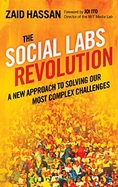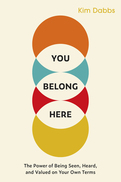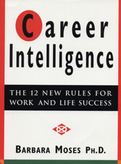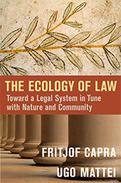is achieved by converting strategic plans and goals into a valuable portfolio of programs and supporting projects. Strategic project leaders and project teams execute the project plans to meet objectives and deliver project outcomes, adding value to the organization. As the role of the business analyst evolves and matures, senior business analysts will emerge as the key individuals in the organization who have the depth of business
acumen and technological proficiency to serve as both business and technology experts. In this capacity, business analysts will become involved in an array of activities designed to devise a strategy to reach the organization's future business vision by achieving strategic goals. As the business analyst elevates into a leadership role as the business and technology strategist, he or she serves the executive team by facilitating, informing, and enabling the most favorable business decisions during the strategic planning and enterprise analysis phases of the business solution life cycle (BSLC). This book examines the emerging critical role of the business analyst during these first two phases of the BSLC.
People often ask, "If we can put a man on the moon, why can't we solve global hunger?"
- Offers a more dynamic, powerful, and practical way to address difficult social problems than the dominant planning approach
- Features inspiring examples of the results social labs around the world have achieved
- Provides detailed guidance on how to start a social lab in any setting and on any level
People often ask, "If we can put a man on the moon, why can't we solve global hunger?" That very question demonstrates the fatal flaw in the dominant way of dealing with difficult social challenges: they're treated like straightforward technical problems. Organizations do a few studies, establish some goals, devise a plan, and attempt implementation. As a look around the world sadly shows, this hasn't worked.
Issues like poverty, ethnic conflict, and climate change are incredibly dynamic and complex, involving an ever-shifting array of factors, actors, and circumstances. They demand a more fluid and adaptive approach. The answer, says Zaid Hassan, is social labs.
Social labs bring together a diverse a group of stakeholders not to create yet more five-year plans but to develop a portfolio of prototype solutions, test those solutions in the real world, use the data to further refine them, and test them again. Their orientation is systemic-they are designed to go beyond dealing with symptoms and parts to get at the root cause of why things are not working.
Hassan builds on a decade of experience-as well as drawing from cutting-edge research in complexity science, networking theory, and sociology-to explain the core principles and daily functioning of social labs, using examples of pioneering labs from around the world. He describes a fast-growing global movement around a new generation of ambitious social labs that are tackling big challenges such as dramatically reducing global emissions, preventing the collapse of fragile states, and improving community resilience. The Social Labs Revolution offers a new generation of problem solvers an effective, practical, and exciting new vision and guide.
2024
Everyone feels like an outsider at some point in their life-when we walk into a room and think to ourselves, I don't belong here. To avoid these feelings of exclusion, many of us hide our authentic selves and allow others to define our identity.
You Belong Here offers a new framework that allows each of us to define how we want to be seen, heard, and valued on our own terms so we feel a sense of belonging in any situation. Further, it serves as a launchpad for organizational leaders and culture builders to create safe spaces for individuals to show up as their authentic selves.
Readers will explore our four identities:
- Our Lived Identity is made up of the aspects of our identity we inherit when we are born into the world.
- Our Learned Identity includes the parts of our identity that we've chosen or claimed as we make our way through the world.
- Our Lingering Identity is the identity we default to when we feel like an outsider and fall back into as a survival mechanism.
- Our Loved Identity is where we find our authentic selves and see ourselves through a lens of empowerment.
When we fully leverage this and live with authenticity and purpose, we can be seen, heard, and valued in a way that gives us a sense of belonging at home, at work, and in society. Belonging is realized when we understand everyone is an outsider and it's the power to create space for those differences that unite us all.
1998
Moses paints a vivid picture of the current dislocations in the workplace-the extraordinary productivity pressures, the erosion of personal time-and their gut-wrenching effects on individuals and their families. She reveals how changes in the workplace have affected different generations differently-from 20-somethings trying to get a foothold in the workplace to 30-somethings concerned about getting ahead to aging boomers recently displaced from the workforce-and examines their values, their psychological profile, and their future opportunities. She also presents a striking vision of the future, showing what it will be like to live and work in tomorrow's world, where we will all be free agents.
In clear, practical terms, Career Intelligence shows how individuals can benefit from key future trends and details the skills they will need to succeed-from learning how to self-market to being able to communicate in powerful ways, from understanding business trends to preparing for areas of competence. Chock full of concrete examples and anecdotes that everyone can relate to, Career Intelligence also offers advice to parents concerned about "career proofing" their children; gives managers insights into how to promote career independence and self-reliance in their staff; and discusses solid ways organizations can improve morale and productivity. Comprehensive, practical, and eminently readable, Career Intelligence provides a visionary blueprint for ongoing career success.
- By the bestselling author of Career Planning Workbook-used by almost one million people in over 1,500 organizations worldwide
- Shows people how to take control of your career, even in the face of tumultuous changes in today's workplace
- Presents 12 new rules for career success based on leading-edge insights into today's radically changed workplace
2015
The Ecology of Law
Fritjof Capra and Ugo Mattei argue that at the root of many of the environmental, economic, and social crises we face today is a legal system based on an obsolete worldview. Capra, a bestselling author, physicist, and systems theorist, and Mattei, a distinguished legal scholar, explain how, by incorporating concepts from modern science, the law can become an integral part of bringing about a better world, rather than facilitating its destruction.
This is the first book to trace the fascinating parallel history of law and science from antiquity to modern times, showing how the two disciplines have always influenced each other—until recently. In the past few decades, science has shifted from seeing the natural world as a kind of cosmic machine best understood by analyzing each cog and sprocket to a systems perspective that views the world as a vast network of fluid communities and studies their dynamic interactions. The concept of ecology exemplifies this approach. But law is stuck in the old mechanistic paradigm: the world is simply a collection of discrete parts, and ownership of these parts is an individual right, protected by the state. Capra and Mattei show that this has led to overconsumption, pollution, and a general disregard on the part of the powerful for the common good.
Capra and Mattei outline the basic concepts and structures of a legal order consistent with the ecological principles that sustain life on this planet. This is a profound and visionary reconceptualization of the very foundations of the Western legal system, a kind of Copernican revolution in the law, with profound implications for the future of our planet.























